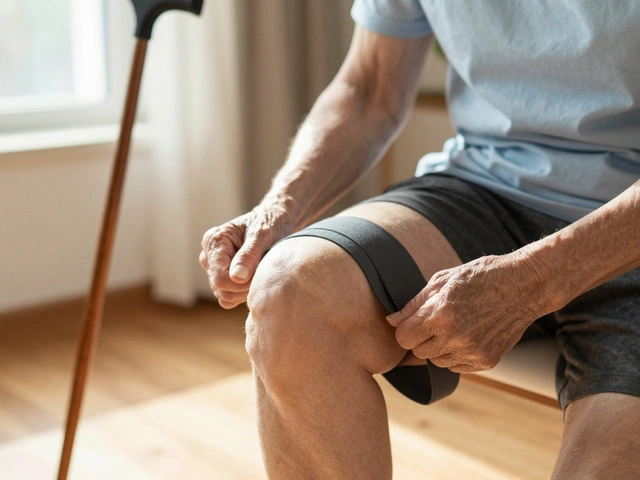Coping Tips You Can Use Today for Pain, Surgery, and Everyday Stress
Dealing with a health issue or just a rough day can feel overwhelming. The good news is that a few easy habits can make a big difference. Below are straightforward coping tips you can start right now, whether you’re recovering from knee surgery, facing cancer treatment, or simply juggling daily stress.
Everyday Coping Strategies
1. Breathe Deeply. When anxiety spikes, pause and take five slow breaths. Inhale through the nose for four counts, hold for two, then exhale through the mouth for six. This simple rhythm reduces the fight‑or‑flight response and eases pain perception.
2. Move a Little. Light movement – like a short walk, gentle stretches, or seated leg lifts – helps blood flow and releases endorphins. Even if you’re limited after surgery, ask your physiotherapist for safe bedside exercises.
3. Keep a Mood Log. Jot down what you feel, when, and what might have triggered it. Over a week you’ll spot patterns and know which activities calm you down. This is especially useful during chemotherapy when emotions swing.
4. Hydrate Smartly. Drinking water supports detox, improves skin, and can lessen medication side effects. Aim for eight glasses a day, but if you have fluid restrictions, follow your doctor’s advice and sip consistently.
5. Choose Soothing Sounds. Background music, nature recordings, or a calm podcast can distract the mind from pain signals. Many cancer patients report that low‑volume classical music makes chemo sessions feel shorter.
When to Seek Professional Help
If coping tips aren’t enough, it’s time to talk to a professional. Persistent feelings of hopelessness, severe anxiety, or uncontrolled pain deserve attention.
Counseling vs Therapy. Counseling often focuses on a specific issue, like adjusting to a new diagnosis. Therapy dives deeper into patterns and long‑term mental health. Both can teach coping tools, but therapy may be better for chronic stress.
Ask About Pain Management Clinics. Orthopedic surgeons and oncologists frequently work with pain specialists. They can adjust medication, suggest nerve blocks, or introduce non‑drug options such as acupuncture.
Join Support Groups. Sharing experiences with others who face similar challenges reduces isolation. Whether it’s an online forum for knee‑replacement patients or a local cancer survivor meet‑up, hearing real stories can inspire new coping ideas.
Remember, coping isn’t about ignoring the problem; it’s about giving yourself tools to handle it better. Try the breathing exercise today, log your moods this week, and reach out for professional help if the load feels too heavy. Small steps add up to a stronger, more resilient you.

Hardest Days After Chemo: What to Expect and How to Cope
Chemo hits everyone differently, but there’s a pattern to the hardest days. This article breaks down when the toughest side effects usually hit after chemo, what people actually feel, and why. Get real, actionable advice on handling nausea, fatigue, and mood swings. Learn which days tend to be the roughest and what you can do to make it through. Each section is loaded with simple tips to help you or your loved one feel more in control after treatment.

What is the Hardest Mental Illness to Live With? Real Challenges, Real Stories
Living with a mental illness can flip your world upside down, but some conditions make daily life especially tough. This article breaks down why certain mental illnesses like schizophrenia, borderline personality disorder, and severe depression are so challenging. You’ll get real-world stories, facts that might surprise you, and straightforward advice to make each day a bit easier. From dealing with the stigma to tips that make a difference, you’ll walk away understanding more—and maybe feeling a little less alone. We’ll keep it honest, practical, and as relatable as talking to your best friend.

Strongest Anti-Anxiety Herb: What You Need to Know
Feb, 22 2025

Is Gabapentin a Controlled Substance?
Mar, 4 2025


